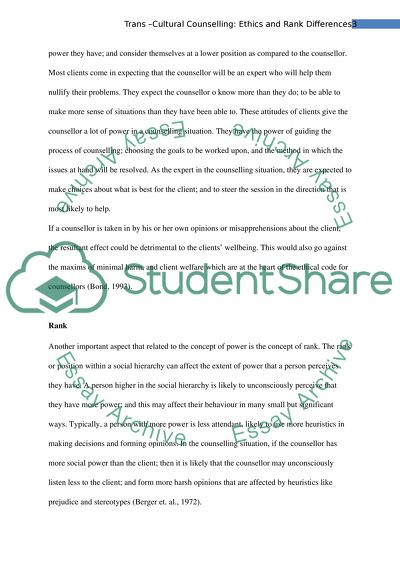Cite this document
(“Trans-Cultural Counselling: Ethics and Rank Differences Essay”, n.d.)
Retrieved from https://studentshare.org/psychology/1426129-rank-ethics
Retrieved from https://studentshare.org/psychology/1426129-rank-ethics
(Trans-Cultural Counselling: Ethics and Rank Differences Essay)
https://studentshare.org/psychology/1426129-rank-ethics.
https://studentshare.org/psychology/1426129-rank-ethics.
“Trans-Cultural Counselling: Ethics and Rank Differences Essay”, n.d. https://studentshare.org/psychology/1426129-rank-ethics.


